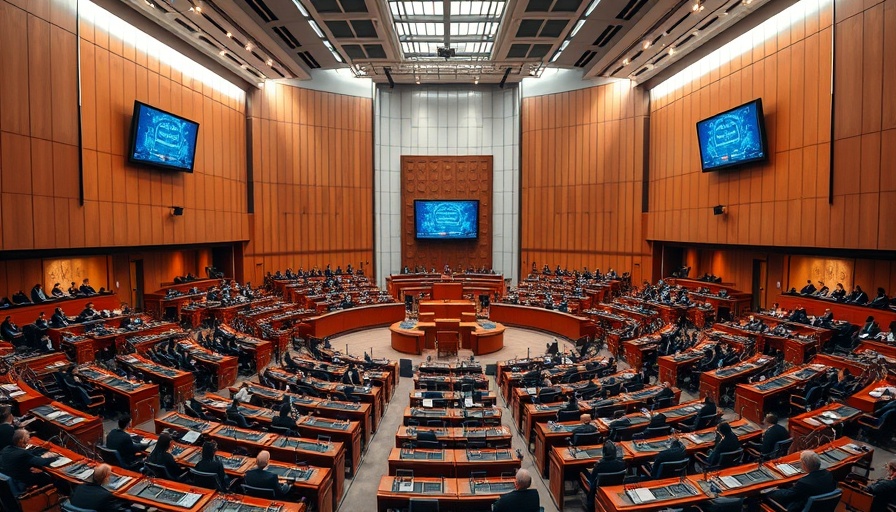
Understanding the Impact of the Gulf of America Bill
On a pivotal day in U.S. politics, the House of Representatives has passed a bill concerning the contentious "Gulf of America" initiative, a project championed by former President Donald Trump. This legislation aims to bolster federal investment in coastal economic development while raising concerns about environmental and social implications.
The Gulf of America bill seeks to allocate significant funding towards enhancing tourism, infrastructural developments, and energy projects along the Gulf Coast region. However, in the wake of economic recovery post-pandemic, many lawmakers are concerned about prioritizing coastal enhancement over other pressing national issues such as healthcare and education reform.
The Broader Implications on Coastal Communities
Coastal communities along the Gulf have long depended on tourism and fisheries, which have often been threatened by climate change and hurricanes. This new legislation offers promising economic benefits but raises questions about sustainability and the long-term viability of investments in an area recognized for its vulnerability to environmental challenges.
Critics argue that while the bill may generate immediate jobs, it could indirectly impact local ecosystems and traditional waterways that are at the heart of many Gulf communities. The voices of conservation experts emphasize a balanced approach—advocating for economic growth while protecting the rich environmental heritage of the Gulf.
Looking at Economic Recovery Post-Pandemic
As the nation continues to recover from the economic repercussions of the COVID-19 pandemic, the Gulf of America initiative appears as both a lifeline for struggling businesses and a point of contention among various stakeholders. With budgetary constraints still a concern, lawmakers debate the merit of investing federal dollars into the Gulf over other national priorities. This has led to mixed reactions among politicians, local business owners, and environmentalists.
Future Predictions: What’s Next for the Gulf?
Forecasts suggest that if the bill is fully enacted, there may be a surge of development along the Gulf Coast, introducing new businesses and infrastructure projects that aim to harness local and federal investment. However, unless coupled with sustainable guidelines, those same projects could lead to increased environmental degradation.
The debate surrounding the Gulf of America bill illustrates larger questions in U.S. policy—how do we reconcile economic growth with environmental responsibility? As the situation develops, observers can expect ongoing discussions as stakeholders weigh the benefits against the risks.
Final Thoughts on a Divisive Issue
The passage of the Gulf of America bill signifies a crucial moment in American legislative history, encapsulating broader national issues that resonate from the Gulf Coast to Washington D.C. While the potential for economic revitalization exists, individuals and communities across the nation must remain engaged, advocating for balanced interests that protect the environment and promote sustainable growth.
For those wanting to stay updated, it’s essential to keep an eye on further developments surrounding the Gulf of America bill and its implications for the future. Whether you are a local resident, environmental activist, or simply an interested observer, this legislation is a defining topic in the ongoing national narrative and deserves attention.
 Add Element
Add Element  Add Row
Add Row 



 Add Row
Add Row  Add
Add 


Write A Comment